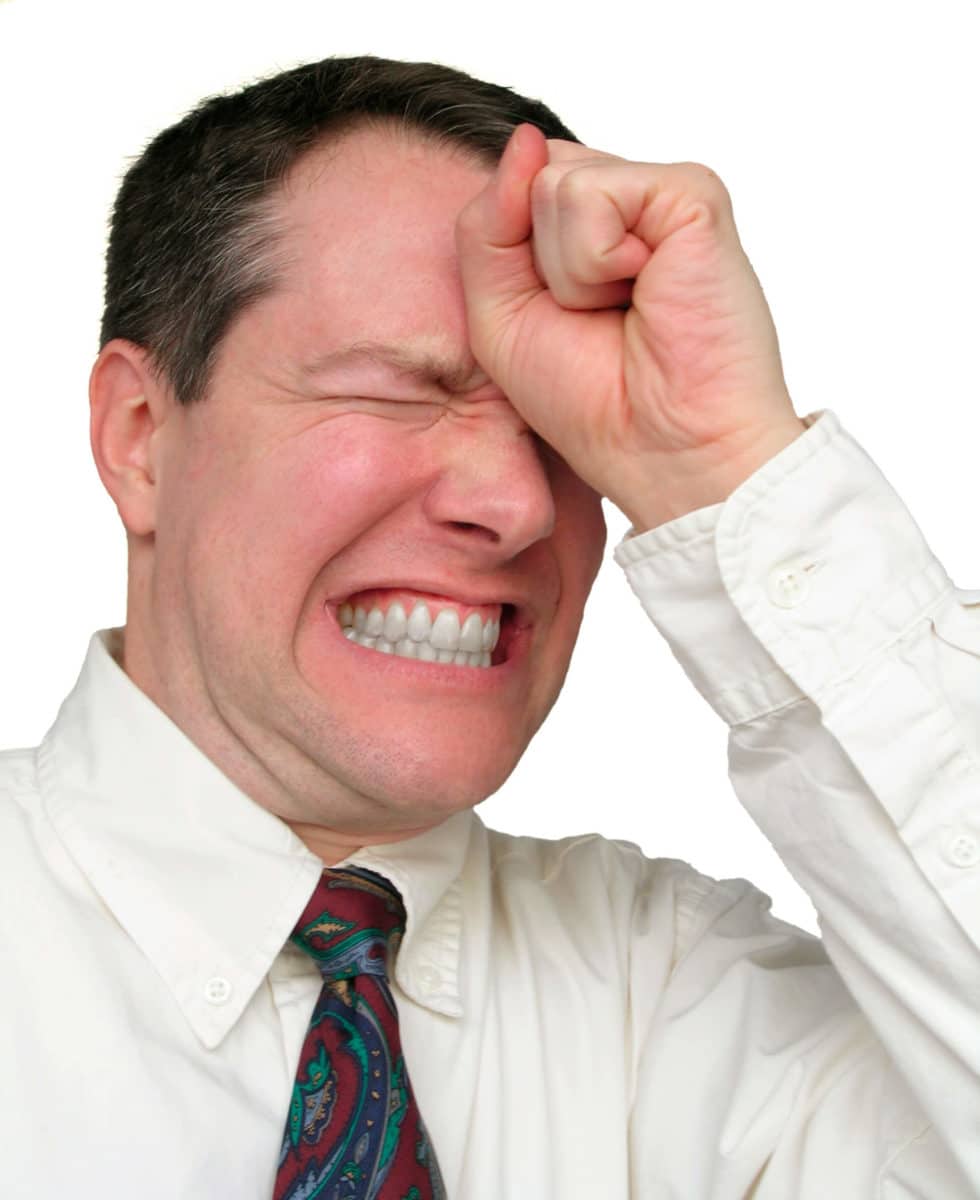Even the best sales professionals can cite at least one sales faux pas they’ve made over the course of their career. Making the mistake is one thing. Knowing how to recover from a sales faux pas is another. It takes both strategy and courage.
“Sales Faux Pas that Still Haunt Us”
Early in my marketing career, I remember having a proposal meeting with a potential client in the direct mail business. The client was referred to me so the odds of securing the account were good. My proposal was right on target, the price was right and I had established a good rapport with the decision makers in the room. Then, the other shoe dropped.
While speaking informally about the direct mail industry, I put my foot way down in my mouth when I used the term “junk mail.” Now, any other group would not have blinked, but I quickly realized from the expressions on their faces that this was more than a simple slip of the tongue. Junk mail was one of those banned terms that stigmatized the industry and therefore should never be used. Okay. I was young (which worked in my favor), but not stupid. I knew I made a big mistake. How did I recover? I apologized directly and let them know that I realized that for direct mail companies, there was no such thing as junk mail. I said, “All mail represents a valuable communication from an organization with a message, a product/service or appeal that was worthy of the recipient’s review.” The immediate mea culpa backed by a straightforward expression demonstrating I understood why the term was a misnomer worked.
Not all sales faux pas work out as well as mine did. (I did win the account and held onto it for many years). In his article, “Learning from Failure,” posted on the National Association of Sales Professionals website (https://www.nasp.com/article/EECDDBE6-3C-1E/learning-from-failure.html), Dave Kahle wrote, “To this day, I can recall with vivid detail the events of my most humiliating failure as a salesperson.” He wrote about having spoken badly about his competition to a customer only to learn that the customer was a personal friend of the competitive salesperson and was “personally affronted by the comment.” Kahle said that, “The dressing down that I received at the hands of that customer remains painfully with me today.”
At the time, Kahle did not have a way to recover, but has learned from his mistake. He wrote that his biggest lesson learned was that failing to acknowledge a mistake makes one a helpless victim tied to the consequences of that mistake. Conversely, making a mistake can humble us, break down any pride or arrogance, and help build our character.
“Top 4 Strategies for Bouncing Back from a Sales Mistake”
While all sales mistakes aren’t equal, and some are too serious for a comeback, there are strategies that can be adopted for many sales faux pas. Here are the top four ways to recover from a sales faux pas:
- Act quickly. Don’t over think your mistake or the response from others. Apologize promptly to all who may have been offended or left with an unfavorable opinion. Communicate that you know why your action or words were a mistake and apologize again.
- If the mistake has consequences whereby another party will get called out for it, offer to take full responsibility by scheduling a future meeting, phone call or through a written communication. In other words, be a stand-up individual and don’t let anyone take the heat for your mistake. This demonstrates courage and integrity.
- Depending on the nature of the mistake and your relationship with the customer/ prospect, use humor to deflect some of the weight of the mistake, lighten things up and regain a positive vibe to the meeting and get the dialogue back on track.
- Be humble and kind in how you communicate through the rest of the exchange. Make sure the customer/prospect sees you as a decent person who just went off track.
“Avoid the Sales Faux in the First Place”
Of course the best strategy for recovering from a sales faux pas is not to make one at all. There are some very common sales meeting mistakes that can easily be avoided with a little conscious thinking and reminders. Most experienced, successful sales people have these practices memorialized and don’t have to think about them. Younger, less experienced sales people, perhaps too eager to land the big sale, often need these strategies on hand until they too become a natural part of their sales process.
- Talk less. Listen more. The more you know about your customer, the more likely you will be able to present to that customer what he/she wants. Listening also conveys interest in what the other person has to say.
- If you don’t remember a person’s name or know how to say it correctly, ask. Dale Carnegie is perhaps the consummate sales professional. His experience and insights became the foundation of a leading global sales training organization. He once said, “Remember my name and you add to my feeling of importance.” The opposite is also true. Forget someone’s name and you have made them feel less important — never good in a sales meeting.
- Just play your own game. Don’t worry about what the competition may have said, what their proposal or pricing was, and by all means, don’t bring up their name. Just put your best foot forward with clarity and confidence.

